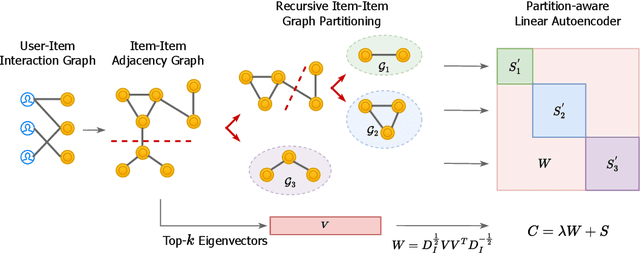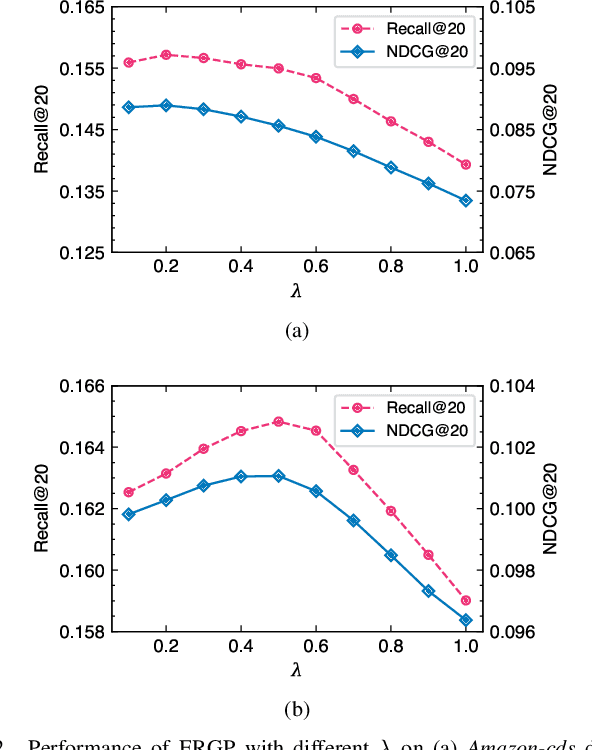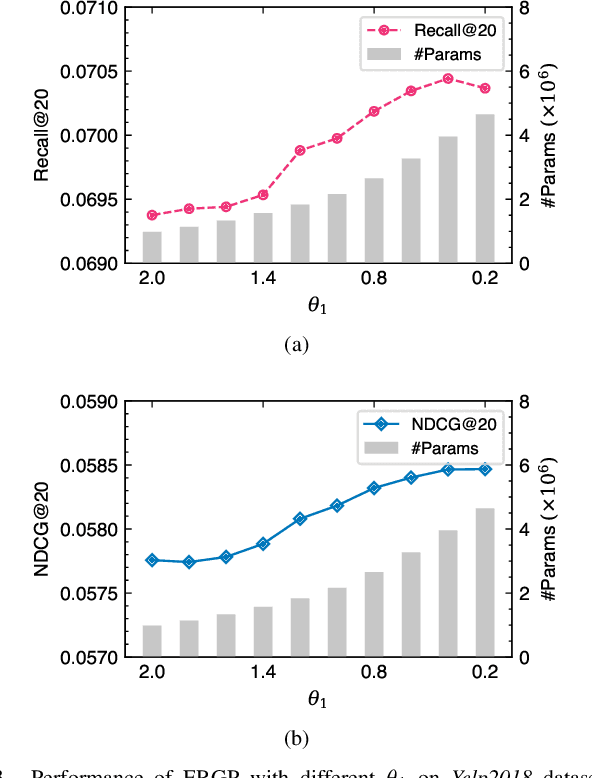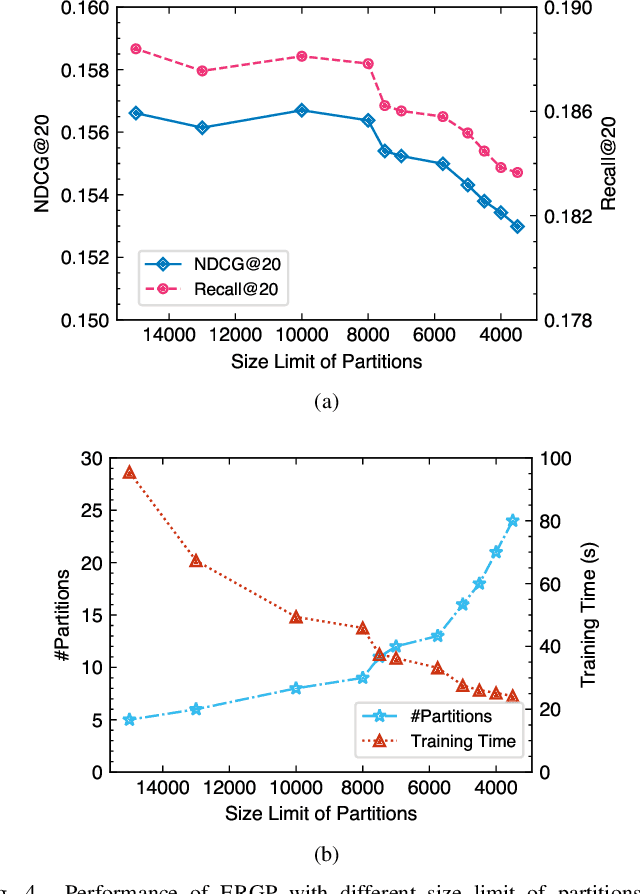Efficient and Scalable Recommendation via Item-Item Graph Partitioning
Paper and Code
Jul 13, 2022



Collaborative filtering (CF) is a widely searched problem in recommender systems. Linear autoencoder is a kind of well-established method for CF, which estimates item-item relations through encoding user-item interactions. Despite the excellent performance of linear autoencoders, the rapidly increasing computational and storage costs caused by the growing number of items limit their scalabilities in large-scale real-world scenarios. Recently, graph-based approaches have achieved success on CF with high scalability, and have been shown to have commonalities with linear autoencoders in user-item interaction modeling. Motivated by this, we propose an efficient and scalable recommendation via item-item graph partitioning (ERGP), aiming to address the limitations of linear autoencoders. In particular, a recursive graph partitioning strategy is proposed to ensure that the item set is divided into several partitions of finite size. Linear autoencoders encode user-item interactions within partitions while preserving global information across the entire item set. This allows ERGP to have guaranteed efficiency and high scalability when the number of items increases. Experiments conducted on 3 public datasets and 3 open benchmarking datasets demonstrate the effectiveness of ERGP, which outperforms state-of-the-art models with lower training time and storage costs.
 Add to Chrome
Add to Chrome Add to Firefox
Add to Firefox Add to Edge
Add to Edge